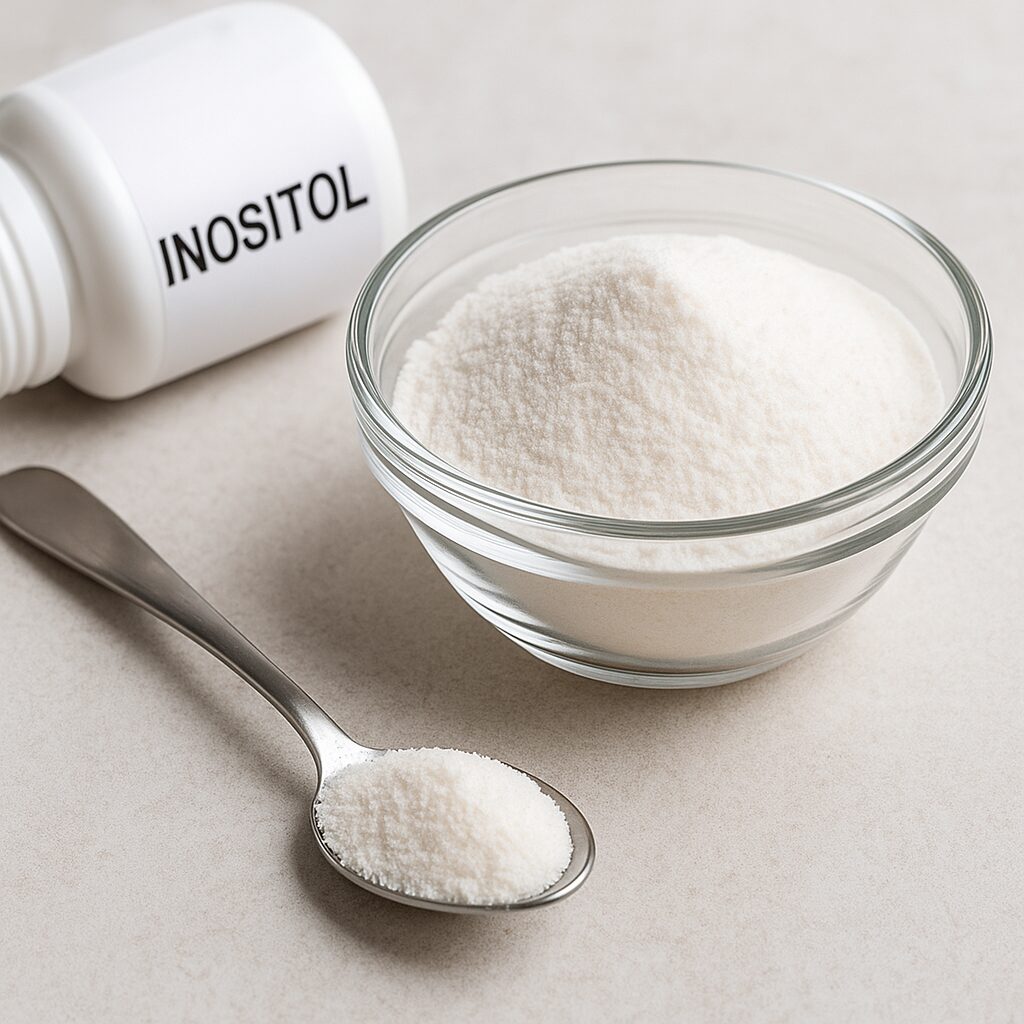Inositol is a naturally occurring compound sometimes referred to as a vitamin-like substance, although the body can produce it from glucose. It plays an important role in cell membranes, neurotransmission, and hormone regulation. Research suggests that inositol may support areas such as mental health, reproductive health, and metabolic balance. This article outlines its potential benefits.

1. Cellular and Nervous System Function
Inositol is part of phospholipids that build cell membranes. It may assist in signal transmission between cells, supporting nervous system communication and brain health.
2. Mental Health Support
By influencing neurotransmitters such as serotonin and dopamine, inositol may help reduce symptoms of anxiety, depression, panic disorder, and obsessive-compulsive tendencies in some individuals.
3. Women’s Reproductive Health
Inositol may improve insulin sensitivity in women with polycystic ovary syndrome (PCOS). This may help regulate ovulation, improve menstrual cycles, and support fertility.
4. Blood Sugar and Metabolic Health
As part of insulin signaling pathways, inositol may help stabilize blood glucose and support management of metabolic syndrome and type 2 diabetes.
5. Liver and Lipid Metabolism
Inositol may reduce fat accumulation in the liver, potentially supporting non-alcoholic fatty liver prevention and healthier lipid metabolism.
6. Nerve Protection
Supplementation may benefit nerve conduction and protect against complications such as diabetic neuropathy. It may support nerve stability and repair.
7. Cardiovascular Health
Inositol may help improve cholesterol profiles and support blood pressure balance. This may reduce cardiovascular risk in those with metabolic concerns.
8. Skin Health
By balancing hormones and supporting cellular function, inositol may help with acne or seborrheic skin conditions. It may also assist skin hydration and regeneration.
9. Sleep and Relaxation
Inositol may have calming effects on the nervous system, which may help improve sleep quality and reduce insomnia linked to anxiety.
10. Antioxidant and Anti-Inflammatory Properties
Through various pathways, inositol may act as an antioxidant, reducing oxidative stress and helping manage inflammation for overall wellness.
🍀
Inositol is often considered a versatile nutrient-like compound that may benefit cell health, mental well-being, reproductive balance, and metabolic stability. While promising, effects can vary, and it is best used as supportive care alongside healthy lifestyle habits.
References and Further Reading
National Institutes of Health (NIH) – Inositol Fact Sheet
World Health Organization (WHO) – Nutrients and Health
European Food Safety Authority (EFSA) – Supplement Guidelines
※ This article is for general informational purposes only. Individual responses may vary, and professional consultation is generally recommended before starting inositol supplementation.